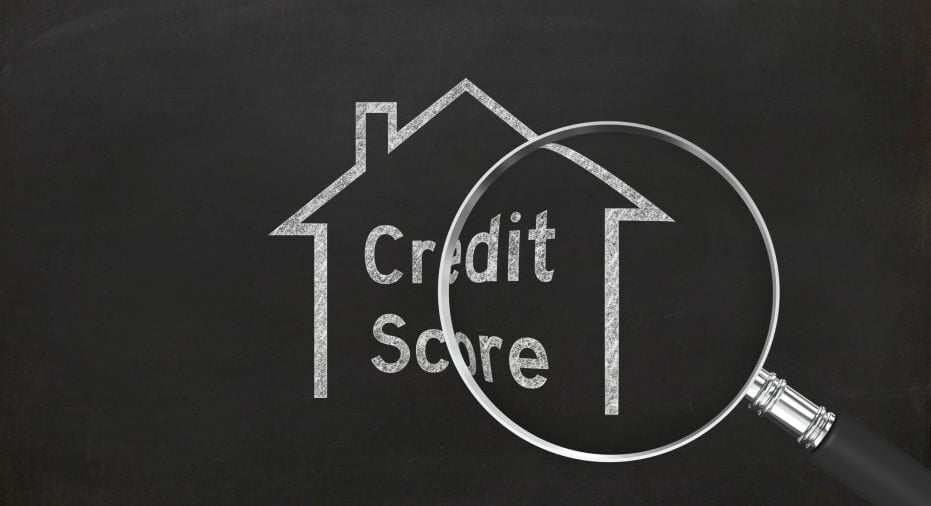[et_pb_section fb_built=”1″ _builder_version=”3.0.47″][et_pb_row custom_padding=”0|0px|17.9219px|0px|false|false” _builder_version=”3.0.48″ background_size=”initial” background_position=”top_left” background_repeat=”repeat”][et_pb_column type=”4_4″ _builder_version=”3.0.47″ parallax=”off” parallax_method=”on”][et_pb_text _builder_version=”3.18.2″]
Buying a Home in Farmington Hills MI and Your Credit Score
Your 3-digit credit score affects nearly every facet of your financial life. The higher the score, the easier it is to achieve important milestones such as buying a car or getting a mortgage to purchase Farmington Hills MI homes for sale. Credit scores typically range from 300 (poor) – 850 (excellent) and borrowers within a certain range can qualify for a mortgage loan.
While you don’t need a perfect 850 credit score to get the best mortgage rates, there are general credit score requirements you must meet in order to take out a mortgage. For the best mortgage rates, you should try to aim for a credit score of 760 or higher. However, the minimum credit score requirements vary.
Conventional and jumbo loans are not insured by the government and will often have higher credit score requirements than government-backed loans, such as VA loans or USDA loans. The VA itself doesn’t have a minimum credit score requirement. Instead, it requires lenders to look at the overall loan profile.
Mortgage lenders may set their own underwriting requirements, and many lenders want to see a credit score of 620 or higher. There’s also no minimum credit score requirement for a USDA Loan, and you can possibly get approved for one with a 620, 600, or even a 580 credit score.
Having a higher credit score makes a big difference in the amount of money you pay over the course of a loan. Credit scores in the higher range can save you thousands of dollars in interest payments over the life of a mortgage.
Minimum FICO Credit Score Requirements for Several Mortgage Loans
1). Conventional Loans
Borrowers need a minimum credit score of 620 (Fair) to qualify for a conventional mortgage loan. Conventional loans follow standards set by government-sponsored mortgage loan companies, Freddie Mac and Fannie Mae, and may be secured by one of these companies or a private lender.
Conventional loans are more affordable and are divided into conforming or non-conforming loans based on whether they conform or follow lending rules set forth by Fannie Mae and Freddie Mac. Conforming loans follow standards such as maximum loan amounts and non-conforming loans may exceed those limits.
2). Jumbo Loans
Borrowers need a minimum credit score of 680 (Good) to qualify for a non-conforming jumbo loan. A jumbo loan exceeds the maximum loan amount limits set by the Federal Housing Finance Agency ( FHFA), responsible for overseeing Fannie Mae and Freddie Mac, as well as the 11 Federal Home Loan (FHL) banks.
Jumbo loans are not eligible to be insured by Fannie Mae or Freddie Mac, which means lenders take on more risk in the case borrowers default on the loan. Borrowers need to meet higher credit score requirements of at least 680 due to the larger loan amounts and riskier nature of these loans. As with conforming conventional loans, down payments vary.
3). FHA Loans
Borrowers need a minimum credit score of 500 (poor) with 10% down or a score of 580 (fair) with 3.5% down. Insured by the Federal Housing Administration, an FHA loan is an option for borrowers who are considered a higher risk due to low credit scores and little money to put toward a down payment. Credit score requirements differ based on how much money you plan to put down.
Borrowers with a higher credit score can qualify to make a lower down payment. With a down payment of less than 20%, lenders will typically require borrowers to take out private mortgage insurance (PMI) to cover the cost if you default. Although PMI costs extra, it allows buyers who cannot make a significant down payment (or those who choose not to) to obtain financing at affordable rates.
PMI typically costs 0.5% – 1% of your loan amount per year. So, for example: if you buy a $300,000 home, you would be paying anywhere between $1,500 – $3,000 per year in mortgage insurance. This cost is broken into monthly installments to make it more affordable.
4). VA Loans
VA loans are insured by the U.S. Department of Veteran Affairs and are designed for eligible members of the military community and their spouses. The VA doesn’t set a minimum credit score requirement for the VA loan, but also does not make the loan. Lenders who do make the loans will typically have a credit score benchmark. Although the benchmark can vary from lender to lender, a 620 (fair) credit score is a common requirement for a VA loan.
When determining credit eligibility for a VA loan, lenders will analyze the borrower’s credit profile. This generally includes pulling credit reports from the three major credit-reporting agencies (Equifax, TransUnion, and Experian) and taking the middle, or median, score as your credit score for VA loan qualification.
In addition to your credit score, your lender will consider past credit patterns to determine willingness to repay. A borrower who has made timely payments for at least the past 12 consecutive months demonstrates a willingness to repay future credit obligations. Conversely, a borrower with late payments, judgments, and delinquent accounts may not be a good candidate for loan approval.
5). USDA Loans
Although USDA loans don’t officially have a minimum credit score requirement, most lenders prefer a minimum credit score of 640. The U.S. Department of Agriculture guarantees a mortgage issued by a participating local lender, similar to an FHA loan and VA-backed loans, allowing you to get low mortgage interest rates, even without a down payment. If you put little or no money down, you will have to pay PMI.
Borrowers typically finance these fees into the loan rather than pay them in cash. Because USDA loans are designed to spur development in rural areas, they are one of the few mortgage programs that require borrowers to purchase property in a specified geographic area. The good news is most of the U.S. is considered eligible outside of urban areas.
The Takeaway
If you are currently planning on buying a home in Farmington Hills MI, you’ll want to check your credit reports and scores as soon as possible. The better your credit history, the more likely you are to receive a good interest rate on your mortgage loan. Lenders will use your credit reports and scores as important factors in determining whether you qualify for a loan, and what interest rate to offer you.
If there are errors on your credit report, you may have trouble qualifying for a loan. Review your credit reports and take steps to fix any errors. You have the right to a free copy of your credit report once per year from each of the three companies (Equifax, Transunion, and Experian) at www.annualcreditreport.com.
Partner with Top-rated Farmington Hills MI REALTOR® -Tom Gilliam
Whether you are interested in buying a home in Farmington Hills, MI, or its time to list your current property, experience matters most in a changing market. Offering over 20 years of local experience, top-rated Farmington Hills REALTOR® – Tom Gilliam offers in-depth local market knowledge and access to the most up-to-date listings. Tom is known for his professionalism and is an expert at uncovering the perfect home for his clients’ lifestyle needs in the right Farmington Hills neighborhood or community.
 For sellers, Tom will create a comprehensive marketing plan that exposes your home to the public as well as to other real estate agents through the Multiple Listing Service (MLS), other cooperative marketing networks, open houses for agents, and so on.
For sellers, Tom will create a comprehensive marketing plan that exposes your home to the public as well as to other real estate agents through the Multiple Listing Service (MLS), other cooperative marketing networks, open houses for agents, and so on.
Your listing will appear on all the most popular real estate sites where buyers spend hours a day looking at homes such as Realtor.com, Zillow, Trulia, REMAX, Redfin, and dozens of others. Your property will also be featured on Tom’s own highly-trafficked website Homes2moveyou.com. You can be assured that your home will get sold quickly and for the highest market price.
Farmington Hill MI Homes for Sale
Tom works very hard for his clients. As your agent, Tom will protect your interests, negotiate on your behalf, advocate for you, and be your trusted guide and advisor throughout the home buying or selling process. If you or someone you know is interested in Farmington Hills MI real estate, please give Tom Gilliam a call today at (248) 790-5594 or you can reach him here.
Tom Gilliam, REALTOR®
RE/MAX Classic
29630 Orchard Lake Rd.
Farmington Hills 48334
Direct: 248-790-5594
Office: 248-737-6800
Email: Tom @ Homes2MoveYou.com
License #314578
[/et_pb_text][/et_pb_column][/et_pb_row][/et_pb_section]



